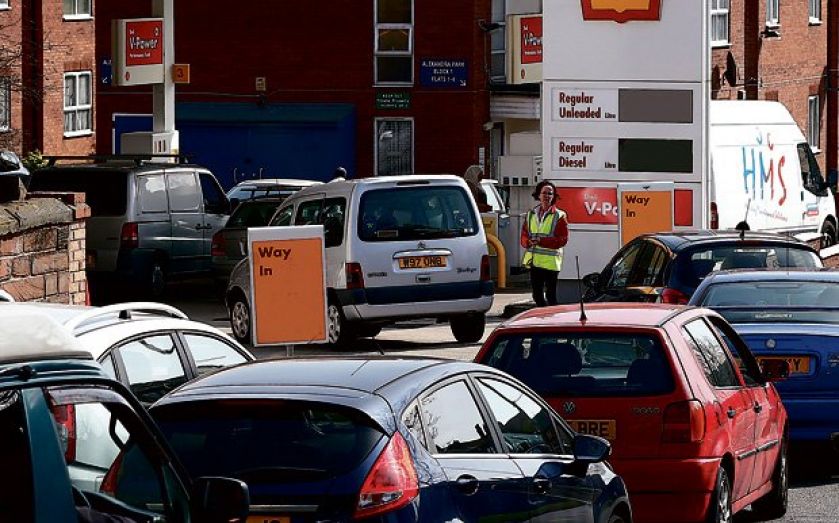More money in your pocket: Tumbling oil prices, £1 a litre petrol, supermarket price wars and mortgage provider competition

Britons should be able to loosen their purse strings further this year, with tumbling oil prices, a supermarket price war and intense competition between mortgage providers forcing down the average cost of living.
Supermarket chains Morrisons and Sainsbury’s – which together operate over 600 petrol stations – will both cut the price of unleaded petrol and diesel by up to 2p per litre from this morning. Morrisons has cut prices eight times in the last six weeks and Sainsbury’s has cut six times in the last seven weeks.
Average unleaded prices are set to drift down to £1 per litre. Three retailers in the midlands have already taken prices below that level. Just six months ago prices were over £1.30 per litre.
Prices at the pump are being driven by competition between retailers and cheaper oil. The price of Brent crude oil – extracted from the North Sea– dropped by 5.35 per cent yesterday to $47.43 per barrel. In June 2014 it was over $110 per barrel.
Goldman Sachs yesterday revised down its three, six and 12-month price forecasts for Brent crude oil to $42, $43 and £70 per barrel respectively from $80, $85 and $90 per barrel.
Goldman analysts believe current subdued state of oil prices will take longer to recover than in the past and will rebound to a lower level. One reason is the fact that the industry has much more storage capacity, thus allowing cheap oil to be hoarded.
Meanwhile, Bank of England (BoE) figures released yesterday confirmed that key mortgage rates carried on falling in December.
The average rate on a two-year fixed mortgage with a typical 75 per cent loan-to-value ratio fell by 0.09 per cent in December to 2.08 per cent. It is down by 0.52 per cent since the summer and now sits at a record low.
Last week saw Barclays introduce the first ever 10-year fixed rate mortgage below three per cent.
Competition among mortgage providers is expected to increase in the coming months as challenger bank TSB – which was separated from Lloyds – will be permitted to offer mortgages through third party brokers. Offering mortgages through brokers allows TSB to be more competitive.
Workers’ pay cheques are being boosted by falling inflation – which is being driven lower by weak oil prices. Pay excluding bonuses rose by 1.6 per cent year-on-year in the three months to October, according to figures from the Office for National Statistics. Pay is expected to rise at a faster rate during 2015.
Economists expect inflation to have dropped below one per cent in December when the figures are released by the ONS this morning.
“Our forecast is for inflation to decline to 0.6 per cent from one per cent in November,” said Victoria Clarke from Investec. “Persistently low oil prices are expected to keep UK consumer price inflation very low – we see it heading towards 0.5 per cent in the first half of 2015,” added economist Howard Archer from analysts IHS.
Prices on the high street dived by 1.7 per cent year-on-year in December, according to data from the British Retail Consortium.
One measure of the Misery index – which adds the rate of inflation to the unemployment rate – calculated by David Owen, chief European economist at investment bank Jefferies, has fallen to its lowest level since 1960. It implies the UK is experiencing a “good” dip in inflation caused by greater output as opposed to a “bad” dip in inflation caused by weak demand and higher joblessness.